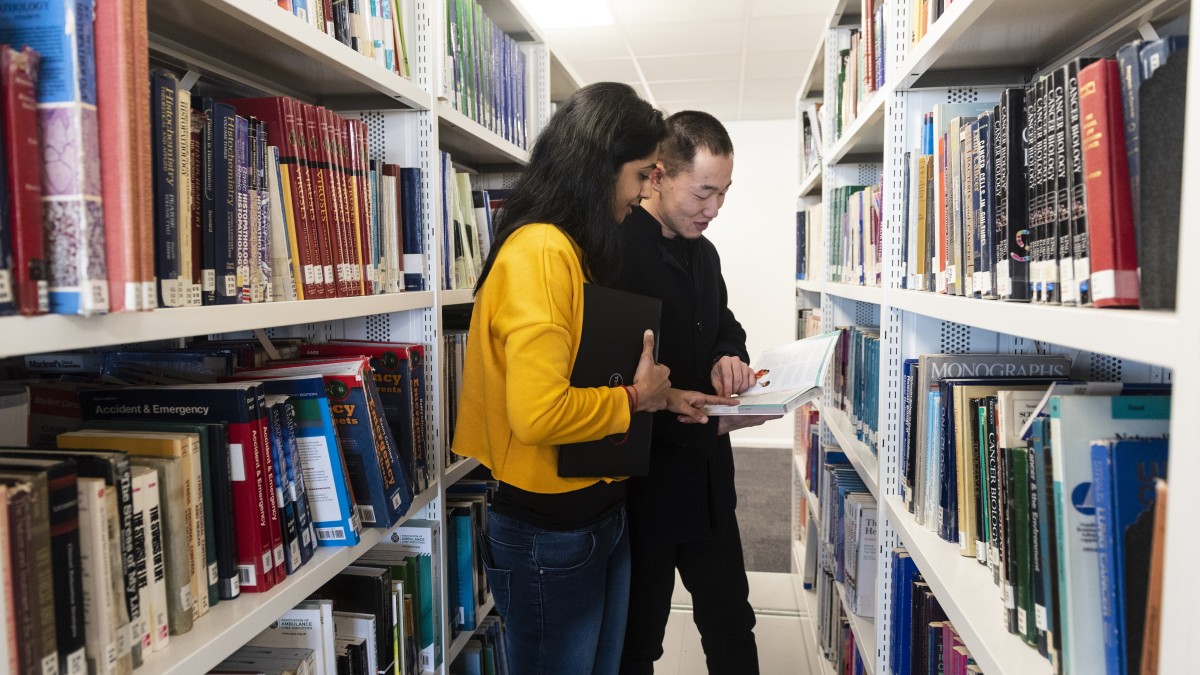South Asian Heritage Month: South Asian mental health in literature
South Asian Heritage Month runs every year from 18 July to 17 August, and celebrates the diverse cultures, histories and communities of South Asia. This year, the theme is ‘Roots to Routes’, exploring the rich journeys that bring us to where we are today.

To mark South Asian Heritage Month, the PAPER (Prescribing Antidepressants in Primary care: Ethnic inequalities in tReatment) study team and other researchers in South Asian mental health have gathered together a collection of stories which showcase the experiences of South Asian people in navigating mental health in changing social, geographical and historical contexts. We hope that you find these reads as enlightening, enriching and encouraging as we have.
My Feudal Lord by Tehmina Durrani – recommended by Madiha Sajid
I'd like to recommend My Feudal Lord by Tehmina Durrani, a Pakistani writer. I first saw it in my father's hands reading it at the dinner table more than 35 years ago! He was so engrossed in the book that he nearly forgot about food. It really piqued my interest as to what he was reading. When I grew up a bit more, in my mid-teens, I started reading the book, which I then thought was deeply emotional. It is an eye-opening memoir and tells the story of Tehmina's abusive marriage to Ghulam Mustafa Khar, who was a powerful Pakistani politician. Through her raw and powerful storytelling, she reveals the manipulation and control she faced in a system that treated her as powerless. Her courage in speaking out about her personal suffering is both heartbreaking and inspiring. What struck me the most was how Tehmina not only opened up about her own story but also shed light on the broader issues of political corruption in Pakistan back then. It’s a tough but important read, one that I won’t forget anytime soon. It would make a fantastic addition to the already very inspiring collection.
The God of Small Things by Arundhati Roy – recommended by Rose Rickford
In this family saga set in 1960s–1990s Kerala, Roy weaves a blistering commentary on caste, colonial and sexual politics of 20th century India into evocative, at times poetic, writing of people and place. Through depictions of the everyday lives of one family, she speaks to deep and enduring socio-political injustices that matter for us all. Reading this novel is a like watching an ever-changing sky – breathtaking at first glance, and yet you can keep looking, again and again, and always find something new.
If I had to Tell it Again by Gayathri Prahbu – recommended by Andrea Martinez
The book is a powerful memoir of the author’s relationship with her dad who was struggling with depression and alcoholism and how her dad's mental health affected the family. Prabhu was genuinely candid in unpacking how her father’s mental illness also shaped her own struggles with grief, depression and anxiety. Although it’s the author’s personal account yet it also breaks the silence around mental health in South Asian families, in essence encouraging open dialogue and challenging the stigma on mental health. The book is a moving narrative about empathy, healing and understanding of family issues confronting us every day.
Lies Our Mothers Told Us: The Indian Woman's Burden by Nilanjana Bhowmick
Nilanjana Bhowmick’s book, exploring issues of empowerment and gender equality for middle-class women in India, provoked a strong reaction in me. She combines reflections on her own life and growing up in a patriarchal household, with case studies and reflections on policies and structural factors which impact women and work. Particularly moving is her examination of the physical and psychological burden of being superwomen (as she describes it, “not having it all, but rather as having to do it all”), and the failure of modern therapy to understand and address how for these women, their experiences are linked to their positions in society. While much of the content may be familiar to those interested in the impact of the division of household labour, this book provides useful insights into the specific experiences of South Asian women.
The Footprints of Partition by Anam Zakaria – recommended by Dr Lydia Poole
This collection of narratives recounts the cross-generational impact of the 1947 partition of India, as experienced by Pakistani and Indian men and women. Collected and retold by Anam Zakaria, these stories capture both first-hand accounts of this period as well as, for younger generations, the inherited stories of partition as recalled by children and grandchildren. The narratives give a snapshot into the individual grief and profound sense of loss experienced during the chaos and brutality of migration as well as in its wake. The book shares stories of children displaced from parents, marriages arranged in haste, love lost and never refound. However, beyond the relational aspect, Zakaria repeatedly conveys the importance of ‘place’ in human suffering. Dislocation from a singular place is described throughout the book as integral to the trauma of this time. Place is not just synonymous with home, but also community, kinship and belonging, forming the basis of identity in a way which goes beyond religious ties. The longing to visit childhood homes and friends was for the partition generation mostly thwarted by ‘hostile visa policies’ and bureaucracy; dying wishes to return ‘home’ were often only later fulfilled by children or grandchildren. Later narratives in the book speak to the youngest generations and the continuation of mistrust and animosity between Pakistanis and Indians. Zakaria describes the danger of one-sided and politically-led accounts of partition which ignore the similarities across people, the many acts of cross-religious kindness carried out in 1947, and the numerous – but underreported – efforts at reconciliation by people on both side of the borders. In this way, The Footprints of Partition presents a nuanced, alternative reading of the history and legacy of partition – one that is at odds with the divisive narratives pervasive in politics, popular media and even within mainstream educational texts.
Unearthed by Claire Ratinon – recommended by Mel Ramasawmy
As a keen gardener, Ratinon’s account of creating a sense of belonging through, literally, putting down roots, resonated with me. Although she does not describe herself as South Asian, Ratinon’s rich descriptions of her parents’ homeland of Mauritius, and exploration of complex questions of race and identity, and their impact on her experiences of depression and anxiety, strongly reflect that of many on the island whose ancestors were brought there through slavery and indentured labour. I found valuable lessons in Ratinon’s negotiation of these experiences through in her relationship with the earth.
The Bookseller of Kabul by Åsne Seierstad – recommended by Areeba Shahab
I first read The Bookseller of Kabul when I was thirteen. Kabul has always fascinated me as my great-grandfather was born and raised there. Though I never met him, my grandfather’s stories painted vivid pictures of life in the city. But they were always male-centred narratives – stories of traders, scholars, and survival – never of women. I had never heard what life was like for the average Afghan woman.
That’s why The Bookseller of Kabul struck such a deep chord with me. Åsne Seierstad, a Norwegian journalist, captures the everyday lives of Afghan women with honesty and empathy. While I initially assumed the book would revolve around a courageous bookseller preserving literature under the Taliban, I quickly realised it was about much more than that. At its core, it’s a story about power, patriarchy and the private battles of women behind closed doors.
The most powerful paradox Seierstad exposes is in the character of Sultan Khan – the bookseller himself. In public, he is a defender of free speech, literature and progress. Yet within his home, he mirrors the same conservative, authoritarian male archetype familiar to many South Asian households. This contradiction – of men who champion freedom in society but enforce control at home – felt deeply familiar. It reminded me of dynamics I’ve witnessed in my own home, which took years to confront and begin to shift.
What I appreciated most about the book was its ability to meaningfully centre women’s voices – their silences, their sacrifices, their small rebellions. Characters like Leila and Sharifa stayed with me long after I finished the book. Their stories weren’t extraordinary in the traditional sense – but they were deeply important. They revealed the emotional toll of obedience, the quiet strength of survival and the longing for dignity in a world that offered them little.
That said, I now read the book with a more critical eye. Seierstad is a Western journalist, and the narrative may inevitably be impacted by that. I often wonder how the book might have read if a South Asian writer had told the same story – someone with a lived understanding of the nuances of culture, honour, family and compromise. Would the critique have been more layered? Would it have offered more space for empathy alongside exposure? Despite that, The Bookseller of Kabul was a transformative read for me!
Looking for more to read in South Asian Heritage Month? You can find other reading lists here and here.



